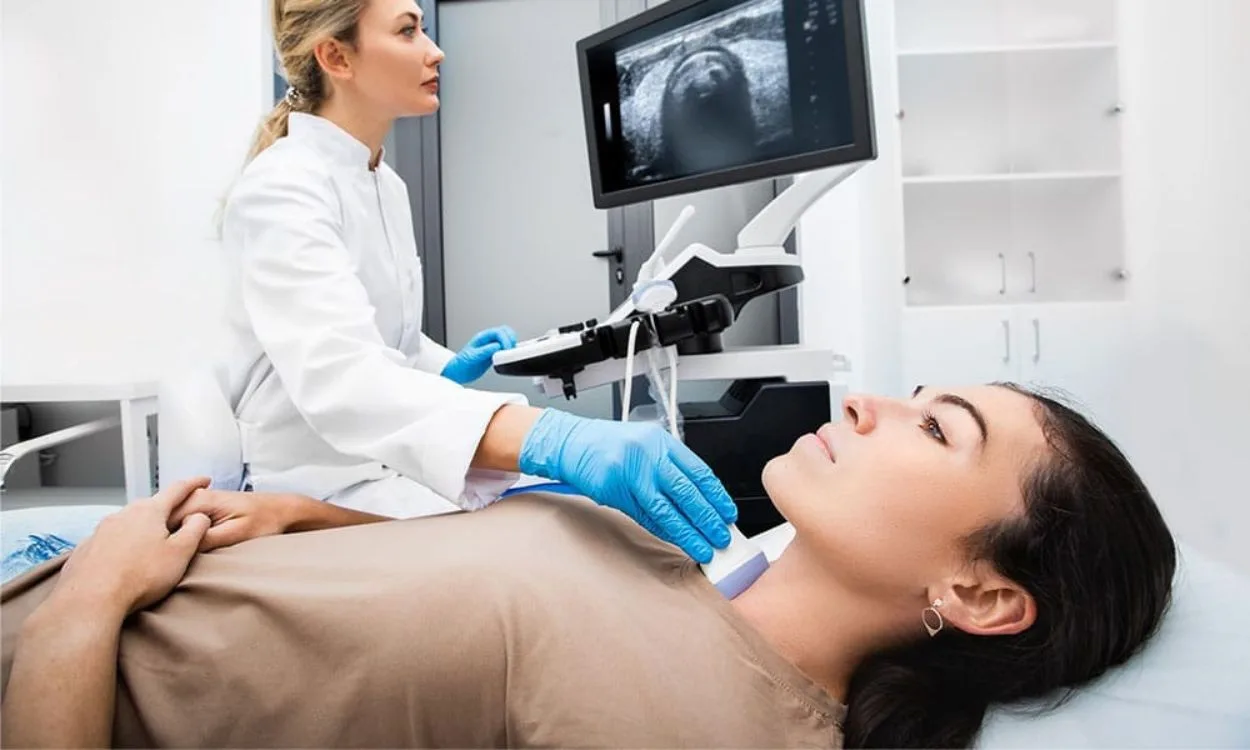What is a Thyroid Ultrasound?
The thyroid is a small gland located in the front of the neck, just below the Adam’s apple. It plays a crucial role in regulating various bodily functions, such as metabolism, growth, and development. To assess the health and condition of the thyroid, doctors often recommend a thyroid ultrasound.
Understanding Thyroid Ultrasound
A thyroid ultrasound is a diagnostic procedure that uses high-frequency sound waves to create images of the thyroid gland. These images provide valuable information about the size, shape, and structure of the thyroid, allowing doctors to evaluate any abnormalities or potential health concerns.
Why is a Thyroid Ultrasound Performed?
Thyroid ultrasounds are typically performed to:
- Assess Thyroid Nodules: A nodule is a lump or abnormal growth in the thyroid gland. Ultrasound helps determine the size, characteristics, and location of nodules, aiding in the diagnosis of potential thyroid conditions.
- Evaluate Thyroid Enlargement: Ultrasound can identify the presence of an enlarged thyroid, also known as goiter. It helps measure the size of the gland and assess any underlying causes.
- Detect Thyroid Cancer: Ultrasound can help identify suspicious nodules or tumors that may indicate thyroid cancer. It provides detailed images that assist doctors in determining the nature of the abnormality.
- Monitor Thyroid Health: For individuals with known thyroid conditions or those undergoing treatment, regular ultrasound scans help monitor the size and progression of the gland and assess the effectiveness of therapies.
What to Expect During a Thyroid Ultrasound
A thyroid ultrasound is a non-invasive and painless procedure. Here’s what you can expect:
- Preparation: There’s typically no special preparation required before a thyroid ultrasound. You may be asked to remove any jewelry or accessories around your neck.
- Procedure: You will lie on your back with your neck slightly extended. A gel will be applied to the neck area, which helps transmit sound waves. The technician will then use a handheld device called a transducer to move over the neck, capturing images of the thyroid gland.
- Duration: The procedure usually takes about 15 to 30 minutes, depending on the complexity of the examination.
- After the Procedure: Once the ultrasound is complete, you can resume your normal activities immediately. The images will be reviewed by a doctor, who will provide further analysis and discuss the results with you.
The Importance of Thyroid Ultrasound
Thyroid ultrasound plays a crucial role in the early detection, diagnosis, and management of thyroid conditions. It allows doctors to evaluate the structure and function of the thyroid gland, aiding in the identification of potential abnormalities or diseases. Early detection can lead to timely intervention and appropriate treatment, ensuring optimal thyroid health.
If you have any concerns about your thyroid or have been experiencing symptoms such as fatigue, weight changes, or mood swings, it is essential to consult a healthcare professional. They can assess your condition and determine if a thyroid ultrasound is necessary.
To take proactive control of your health and monitor your thyroid, consider downloading the Fitpaa app. Fitpaa provides a personalized and comprehensive approach to health and fitness, including the management of thyroid conditions. With Fitpaa, you can access a team of fitness coaches, nutritionists, and doctors who will guide you towards your health goals. Take the first step towards a healthier future and download the Fitpaa app today.









